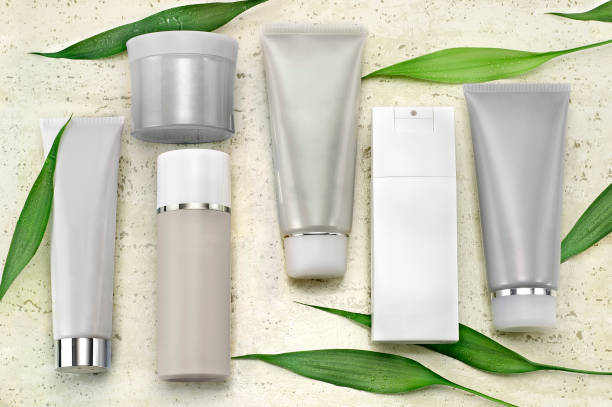
Cosmetics: A Boon or a Bane?
Cosmetics have become an integral part of daily life for many people, with the beauty industry evolving significantly over the years. From ancient times to the modern-day, cosmetics have played a vital role in self-expression, confidence-building, and even cultural practices. However, despite their widespread popularity, cosmetics are often subject to debate—are they truly beneficial, or do they come with downsides?
In this blog, we’ll explore the duality of cosmetics, examining both the positive and negative aspects, to determine whether they are truly a boon or a bane.

The Boon of Cosmetics
1. Boosts Confidence and Self-Esteem
- One of the most cited benefits of cosmetics is the confidence boost they provide. Many people feel more attractive and empowered when they use makeup, which can translate to improved self-esteem.
- Makeup allows individuals to enhance their natural features, covering up imperfections such as acne, dark circles, or blemishes. This leads to an increased sense of comfort in social settings, helping people present their best selves.
- Cosmetics, especially skincare products, help address specific skin concerns, promoting healthier skin in the long run.
2. A Form of Self-Expression
- Cosmetics allow for creativity and individuality. From bold lipstick shades to elaborate eye makeup, they offer a way for people to express their personalities and moods through their appearance.
- Makeup trends change with time and can reflect cultural movements. For instance, dramatic eye looks may signal rebellion or boldness, while nude tones often represent simplicity and natural beauty.
3. Enhances Professional Appearance
- In professional settings, makeup can enhance one’s polished appearance, helping individuals feel more put-together and ready to tackle their tasks.
- Studies have shown that people who wear makeup in professional environments often feel more confident and are perceived as more competent or approachable. While this perception might be flawed, it’s a reality in many industries.
4. Cultural and Social Importance
- In some cultures, makeup and cosmetics play a vital role in rituals, ceremonies, and celebrations. Henna in Indian weddings or makeup in performances (like geisha makeup in Japan) serve as culturally significant beauty practices.
- Cosmetics also foster communities of like-minded individuals, such as the vibrant beauty influencer culture, where tips, trends, and experiences are shared globally.
5. Technological and Ethical Advancements
- With increasing focus on cruelty-free, vegan, and sustainable products, the cosmetic industry has been adapting to meet the demands of ethical beauty consumers.
- Innovative ingredients such as antioxidants, hyaluronic acid, and retinol make cosmetics more than just decorative; they offer skincare benefits as well.
The Bane of Cosmetics
1. Potential Health Risks
- Not all cosmetics are made with skin-friendly ingredients. Some products contain harmful chemicals like parabens, sulfates, and formaldehyde, which can cause irritation, allergies, or even long-term skin damage.
- Overuse of certain cosmetic products, especially those with harsh ingredients, can disrupt the skin’s natural balance, leading to issues such as dryness, breakouts, or premature aging.
- There’s growing concern over the use of microplastics and nanoparticles in some cosmetics, which can have a detrimental effect on both skin and the environment.
2. Body Image Pressures
- While cosmetics can boost confidence, they can also perpetuate unrealistic beauty standards. The pressure to look “perfect” at all times has been amplified by social media, where flawless makeup is often associated with worthiness or success.
- Over-reliance on makeup can lead to self-esteem issues when individuals feel they cannot present themselves without it. This can create a cycle of dependency on cosmetics for self-acceptance.
3. Environmental Concerns
- The cosmetic industry, particularly non-sustainable brands, contributes to environmental degradation. The packaging waste from beauty products, particularly single-use plastics, is a significant contributor to pollution.
- Harmful ingredients like microbeads (once used in exfoliants) and chemicals found in sunscreens can harm marine life and ecosystems. Though there has been progress in creating eco-friendly alternatives, the environmental impact of beauty products remains a challenge.
4. Financial Burden
- High-quality cosmetics, especially from luxury brands, can be quite expensive, leading some individuals to spend large amounts of money to maintain their appearance. This can result in financial stress, especially when products are purchased regularly.
- In addition to the cost, trends in makeup often change, prompting frequent purchases of new products to keep up with the latest looks, contributing to a consumerist mindset.
5. The Risk of Addiction
- The beauty industry thrives on encouraging consumers to try the latest products, which can create a form of dependency. Many people feel compelled to buy new cosmetics, even when they don’t need them, driven by beauty marketing campaigns that capitalize on insecurities.
- Social media has further amplified this addiction, with influencers promoting endless beauty hauls, often pressuring viewers to buy products to fit into the latest trends.


